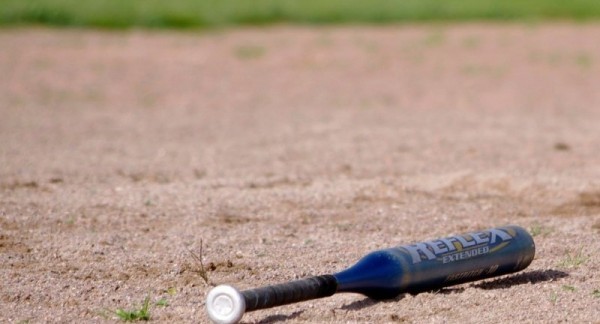
Freshman baseball practice, fourth or fifth day maybe, the last day before the final cuts and the team is set for the season, and for some reason the coach dictates bunting practice, and we all troop to the plate, one after another, because bunting is important, and every man should know how to drop bunts in front of the plate, and execute drag bunts, and bunt toward third base or first base as required, and we should also learn how to chop-bunt, by slashing down at the pitch and deliberately hammering it into the patient dust, so that ideally the ball hops up so sharply that the onrushing pitcher watches helplessly as it hops over his head, are you paying attention here, boys?
Even the guys who clearly were going to make the team, and clearly would never be asked to bunt in their entire high-school careers, had to take bunting practice, and there was a good deal of razzing and ragging going on, because bunting is one of those dark baseball arts that not every good hitter is good at, like hitting sacrifice flies, and weirdly it seems like the worse the hitter, the better the bunter, so that the scrawny infielders who could barely hit their weight were the best bunters, and the superb muscular athletes who consistently cracked doubles and occasionally homers were lesser bunters, for reasons that are murky. Why the smaller skinnier guys were better at manipulating the bat in this one particular specific arcane act is a mystery, but that appeared to be the case, which explained a great deal of the razzing and ragging.
The order in which guys went to the plate for bunting practice was the measure of how good they were at baseball and how likely they were to make the team, so I was near the end of the line, with only a couple of guys behind me. I did predictably poorly when it came to bunting, because I was afraid of the ball, a mean savage nasty stony pebble I could barely see and that hurt terribly when it hit you. I had been hit several times already, by pitches and ground balls and once, mortifyingly, by a fly ball, so I was leery, which did not help my bunting, which would have been awful anyway. I survived, though, and then my turn was over, and Fred came to the plate.
Fred was a geek. Fred was gawky and uncoordinated and had a silly haircut. Fred did not even have cleats and wore his sneakers and once he had slipped and fallen so comically in the outfield that even the coach lost it laughing. Fred was not going to make the team. He knew he was not going to make the team. Everyone knew. It wasn’t that guys picked on him; it was that no one bothered to acknowledge him. I was no better than anyone else in this. I ignored him too. I have a vague memory of him extending his hand to say hello and me ignoring him and I believe that memory is vague because I am ashamed of it.
But, o inexplicable, o unimaginable, o incomprehensible, Fred could bunt. Each guy got 10 pitches, and Fred stood there calmly, hands correctly aligned on the bat, feet squared up to the pitcher, and he dropped one lovely bunt after another: dribbled slowly up the third-base and first-base lines, twice each; twice chopped so hard it bounced six feet over the onrushing pitcher’s head; twice dropped stone-cold-dead a few feet in front of the plate, exactly where no one would be able to get to it in time; once hit with such deft backspin that the ball leapt back toward the plate away from the startled shortstop’s hungry hand; and finally a drag bunt executed so perfectly that one of the fathers in the stands, who did not realize that Fred was a geek, exclaimed in pleasure.
All this would be amazing enough, but it’s the three or four seconds after this that I wanted to share with you. No one said a word. I don’t think anyone even moved a muscle, other than Fred, who crossed first base and turned into foul territory to come back to the dugout. Just that—the absolute stillness, as Fred steps on the bag and turns toward the dugout. Just those few seconds, when no one said a word or even moved a muscle. Just that.

